
Gaza Saga: New Seasons, Old Stories
In October 2009, the Israeli government officials and the general public were furious when a Turkish drama series depicted an Israeli soldier shooting a Palestinian girl during the attack on Gaza. A diplomatic storm rose as the Turkish ambassador to Israel was summoned for reproach and Prime Minister Benjamin Netanyahu accused Turkey of incitement against the Israelis. In “Separation: Palestine in Love and War,” a Palestinian girl is killed by Israel’s aggression in Gaza. Shortly after the episode, the character’s became the headline of Israel’s leading news website.
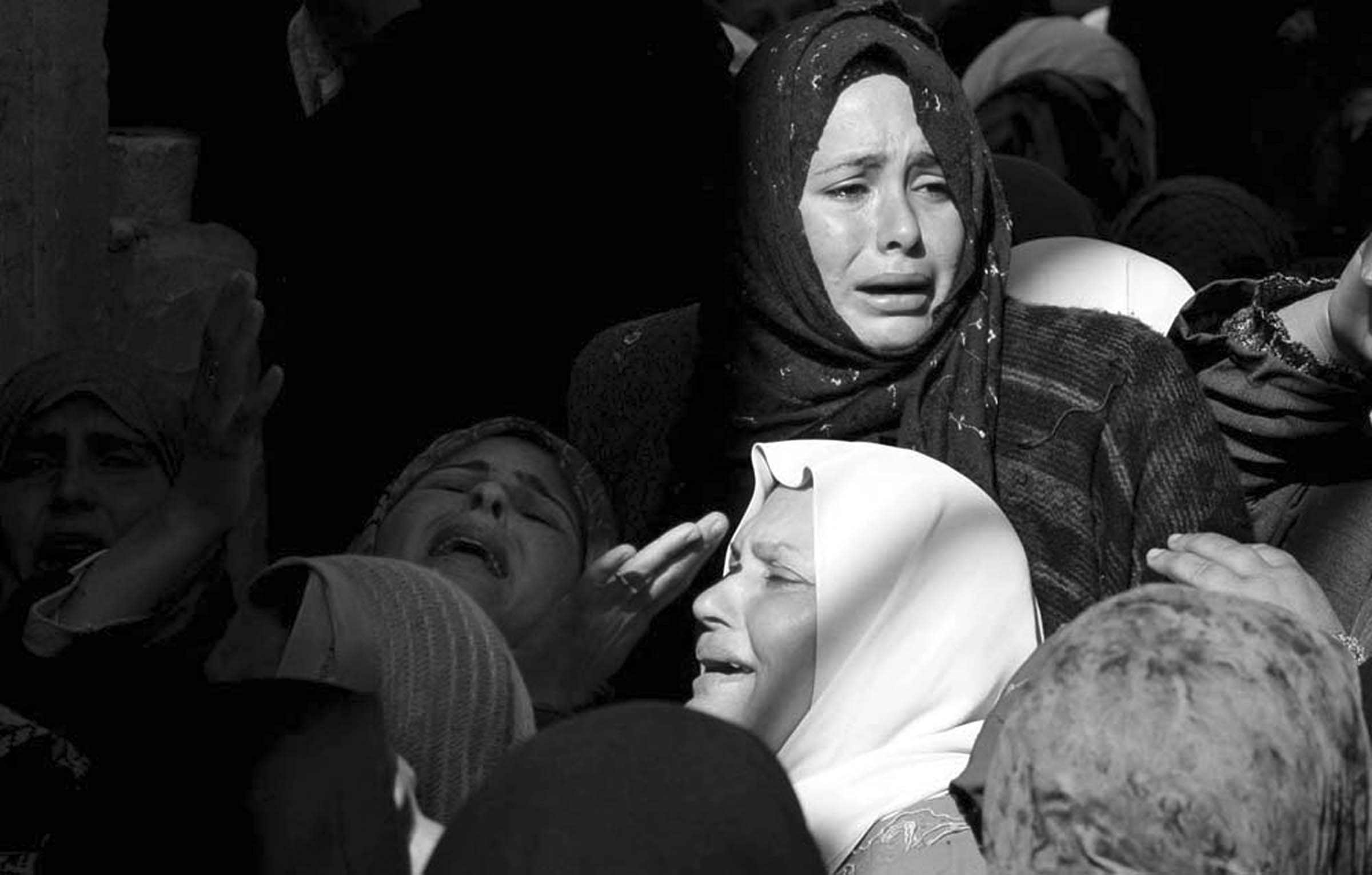
Women mourned the loss of their family members as the attacks by the Israeli Defense Forces continued, bringing destruction and death around the Gaza Strip.
Photo from Rafah Today
For a feminist activist living in Israel and struggling against the occupation of Palestine, that was the first time I saw the face of a Gazan killed by an Israeli soldier in the Israeli media. It is ironic that Israelis were getting the most realistic account of the war on a fictional television show.
Most Israelis care so much about the internationally televised images of their actions, yet care so little about real people— girls, boys, women and the elderly who were shot to death by the Israeli army.
Women were the first to organise public protests against the attack on Gaza, similar to the Second Lebanon War only three years ago. On the first night of the attack, we organised more than 1,500 Israelis to march to the Ministry Defense in Tel Aviv. Despite the swelling protests of the thousands who went out on the streets, we still could not stop the war. The pleas of the United Nations Secretary General were as helpless and as hopeless as our calls.
Nonetheless, this war succeeded in politicising and engaging people in antioccupation activism way more than our outreach and empowerment work could do. In Israel and the United States many people who were politically dormant point out that the attack on Gaza woke them up.
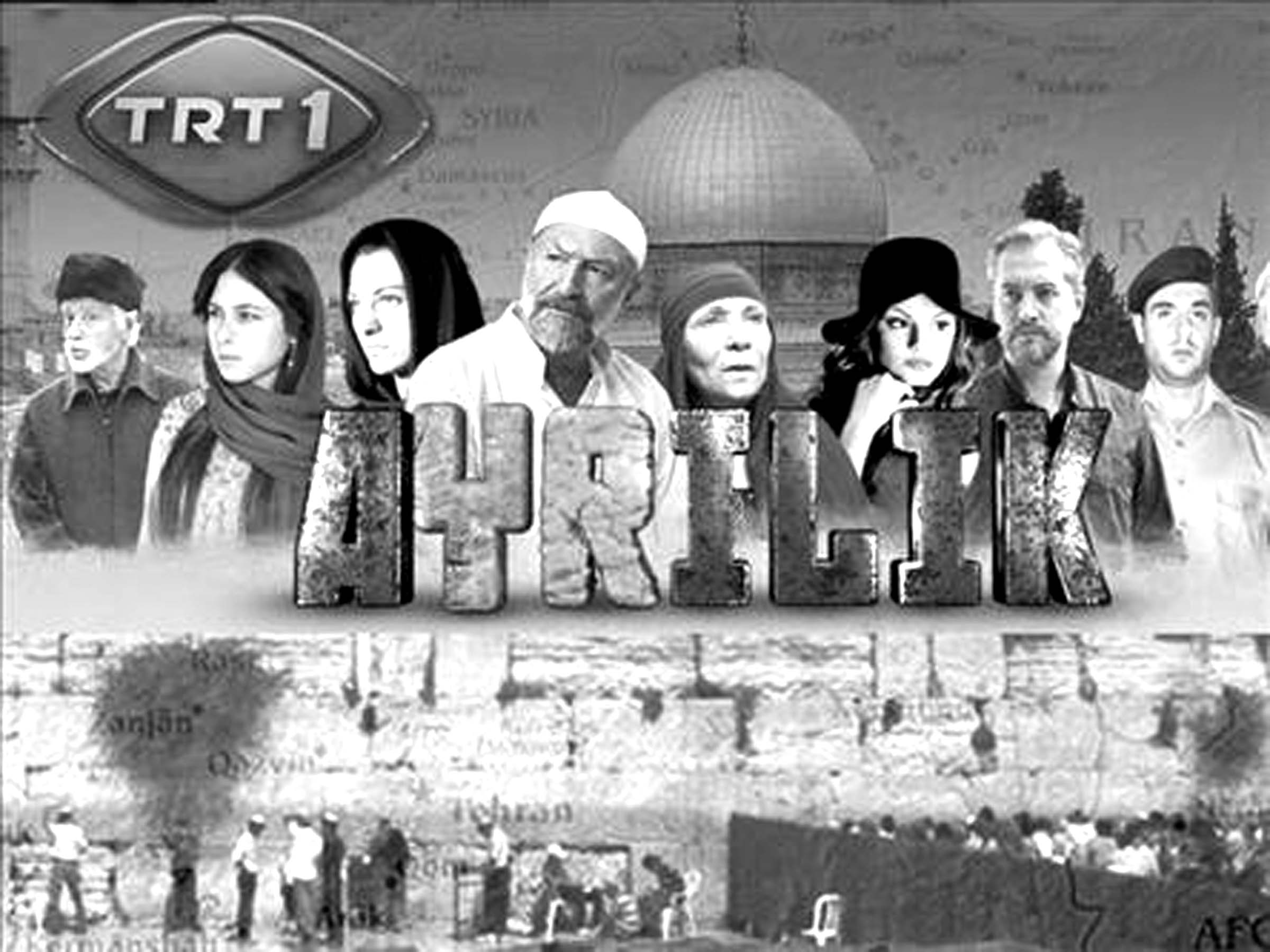
The popular Turkish drama series, “Separation: Palestine in Love and War” caused a diplomatic dispute between Turkey and Israel in October 2009. Around that time, Turkey also decided to cancel the international dimension of its military training exercises, which Isreali officials said was the former’s means of avoiding any deals with Israel. Turkey has been quite vocal about its opposition against the Gaza war in 2008.
Source: Kardas, Saban (19 October 2009). “Television Drama Strains Turkish-Israeli Ties.”
Image from the Turkish Radio and Television Corporation
The Goldstone report suggests the possibility that war crimes were committed during Israel’s siege of the territory. The Gaza war was a crime. It was a war of an army against a civilian population whose land has been occupied for 40 years and is besieged to this day. However, the report did not prompt any response from the Israeli government nor the mainstream public. Instead, the government has exercised tremendous efforts to suppress international debates over their actual findings.
From Anti-Semitism of human rights missions to collaboration with terrorists, all means have been used to silence this debate. Such complete absence of accountability is overwhelming. The pilots who dropped the bombs and the snipers who shot entire families are still walking among us. I probably see them every day on the street, the supermarket and the pharmacy.
Moreover, the war did not end on 21 January 2009. It continues to drag on. In fact, it has become the rallying point of the national elections in February. The winning slogan was “No Citizenship without Loyalty” of the Israel Beitenu party. It reminded those of us who forgot for a moment the willingness of too many Israelis to wave their democratic rights and civil liberties for the sake of the exclusion of Arab citizens and other leftist “traitors” to the nation.
Gaza War
For three weeks beginning on 27 December 2008, Israel assaulted Hamas, dubbed as “Operation Cast Lead.” Israel bombed the Gaza Strip until the country relented to international pressure, including the inauguration of then newly-elected United States president Barack Obama. This, despite the calls of most governments, the United Nations and other international personages and institutions for peace talks.
The Gaza war is usually attributed to the tense relationship of Israel and the US with Hamas, a political group that won a landslide elections over Fatah, which had been at the helm of the Palestinian Authority. Hamas also emerged victorious in the armed conflict with Fatah and eventually took over the Gaza Strip.
But hostilities continued in the Gaza Strip. Hamas fired rockets directed at Israel while the latter organised a blockade - imposed curfews, restricted travels, including the entry of food and fuel supplies and cut down electricity. The blockade was already criticised for it constituted a collective punishment that deeply impacted civilian populations especially women and children.
As International Relations professor Martin Shaw asserted, “True, Hamas’s rocket-fire from within Gaza both kills and terrorises civilians in those parts of Israel within its range; but its purpose is political rather than military; it serves principally to demonstrate symbolic ‘resistance’ and Israeli vulnerability.”
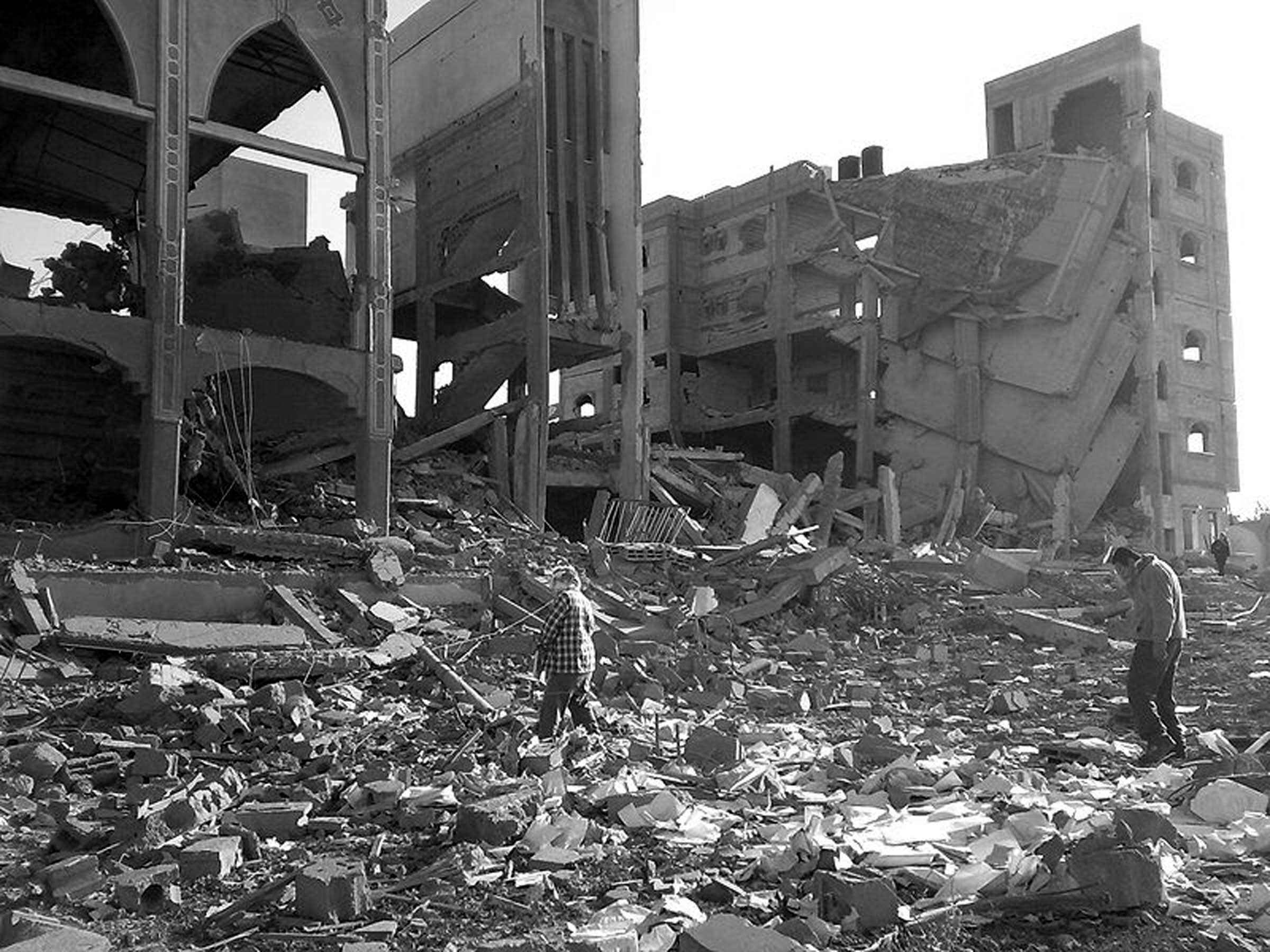 Egypt also closed its borders though they were re-opened mainly for the transport of food, water and fuel. Back on 19 June 2009, Egypt brokered a six-month ceasefire between Hamas and Israel. This was not to be renewed, resulting in Israel’s air and ground attacks.
Egypt also closed its borders though they were re-opened mainly for the transport of food, water and fuel. Back on 19 June 2009, Egypt brokered a six-month ceasefire between Hamas and Israel. This was not to be renewed, resulting in Israel’s air and ground attacks.
Gaza’s key infrastructures such as schools and hospitals, including those belonging to the United Nations were levelled down. Much needed humanitarian aid remains severely restricted, aggravating the Palestinians’ basic needs such as food and water. Israel’s grave actions and unwavering stance were met by criticism and condemnation.
As former Irish president Mary Robinson described, “All signs increasingly point to an Israeli assault in Gaza which contravenes international legal norms relating in particular to proportionality and collective punishment.” In the end, the Gaza war claimed the lives of 1,387 Palestinians and 13 lives from the side of Israel.
According to the human rights organisation, B’Tselem – Israeli Information Center for Human Rights in the Occupied Territories, 773 were civilians with 107 women and 320 children.
Sources: Al Jazeera (nd). “Timeline: Gaza crisis.” ; B’Tselem’s (9 September 2009). B’Tselem’s investigation of fatalities in Operation Cast Lead.; Orr, Deborah (7 January 2009). “There wouldn't have been Gaza rockets without the blockade.” ; Robinson, Mary (13 January 2009). “A crisis of dignity in Gaza.” ; Shaw, Martin (20 January 2009). “Israel’s politics of war.” and Wikipedia (nd). “Gaza War.”
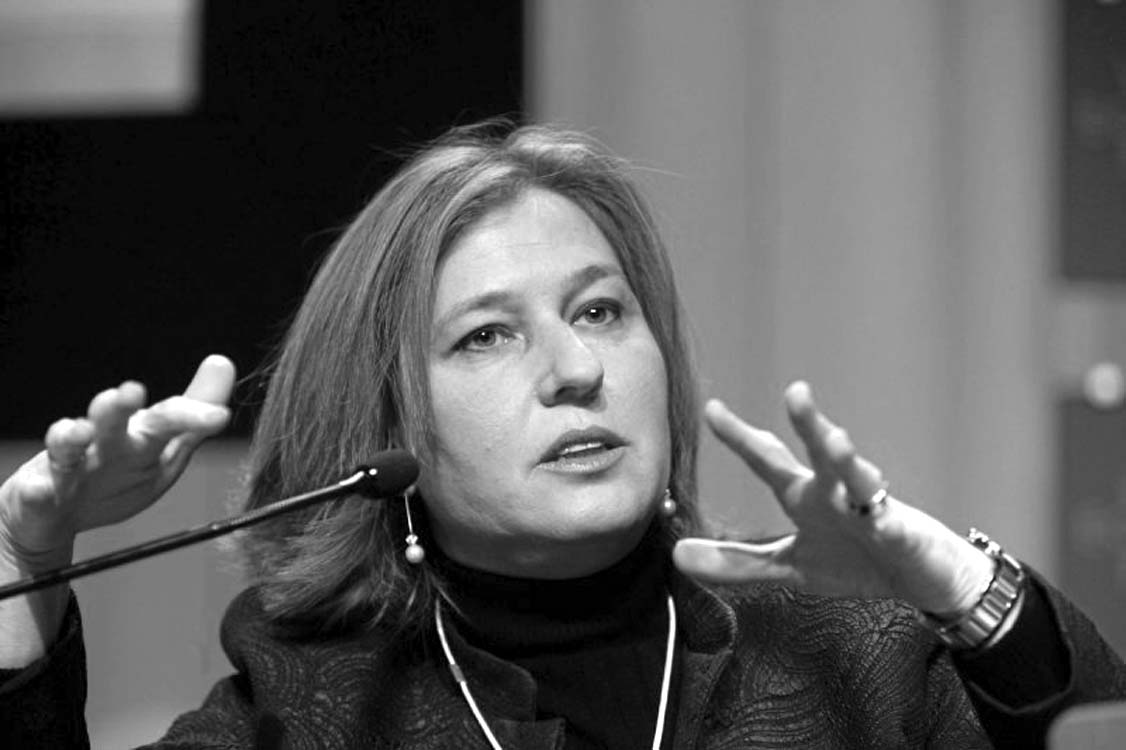
Tzipi Livni was Israel’s foreign minister during the war. She later ran under the Kadima party, which won by a slight margin with 28 out of the 120 seats at the Knesset. In December 2009, Livni was issued an arrest warrant by a British court for war crimes.
Photo from Wikimedia Commons
It is important to remember that the difference between extreme right and mainstream left is superficial. Avigdor Lieberman talked in terms of the “transfer of population” while Tzipi Livny held on to the two state-solution. Yet the actions on the ground were identical – unending siege and imprisonment of a million and a half Gazans, expansion of settlements in the West Bank and East Jerusalem, and so on.
Besides, it was quite embarrassing to have Tzipi Livny as the Minister of Foreign Affairs. Some people believe that women in top positions in politics necessarily constitute a feminist achievement. But Livny simply fulfilled the traditional role of women. She washed the blood off a soldier’s uniform.
She spoke of negotiations, settlements and peace, employing the very same language that the world wanted to hear. This kind of politics is dangerous as it gives all parties involved the benefit of the doubt, and excuses the international community from taking responsibility. As long as politicians are shaking hands and smiling at the camera, the “peace process” goes on.

A former bouncer of Russian descent, Avigdor Liberman has been accused of racism in his pronouncements against Palestinians. He openly proposed subjecting Arab Israelis to a loyalty tests before the latter could obtain their Israeli citizenship, touting them as a “worse threat than Hamas.” Lieberman is also accused of bribery, fraud, breach of confidence and other cases which are linked to his party’s recent election campaigns. He is now Israel’s foreign minister.
Photo from Wikimedia Commons
We have seen the Obama administration making far-reaching statements and, refreshingly, making actual demands of Israel. However, it appears that as long as the economic support will continue flowing from the US to Israel, there will be no reason for the Israeli government to change its policies. Hence Obama enjoys an image of strong leadership that puts pressure on Israelis while the Israeli government cements its national pride in dismissing the demands of the US. At the end of the end, the Palestinians are once more on the losing end.
The situations in Israel and Palestine is not only about actions and policies. The problems of this occupation go to the full depth of colonial consciousness, implying the dehumanisation of Palestinians and a strong inherent belief that they must be dominated and controlled. This analysis puts the famous expression of Ehud Barak, “There is no partner,” in a new light.
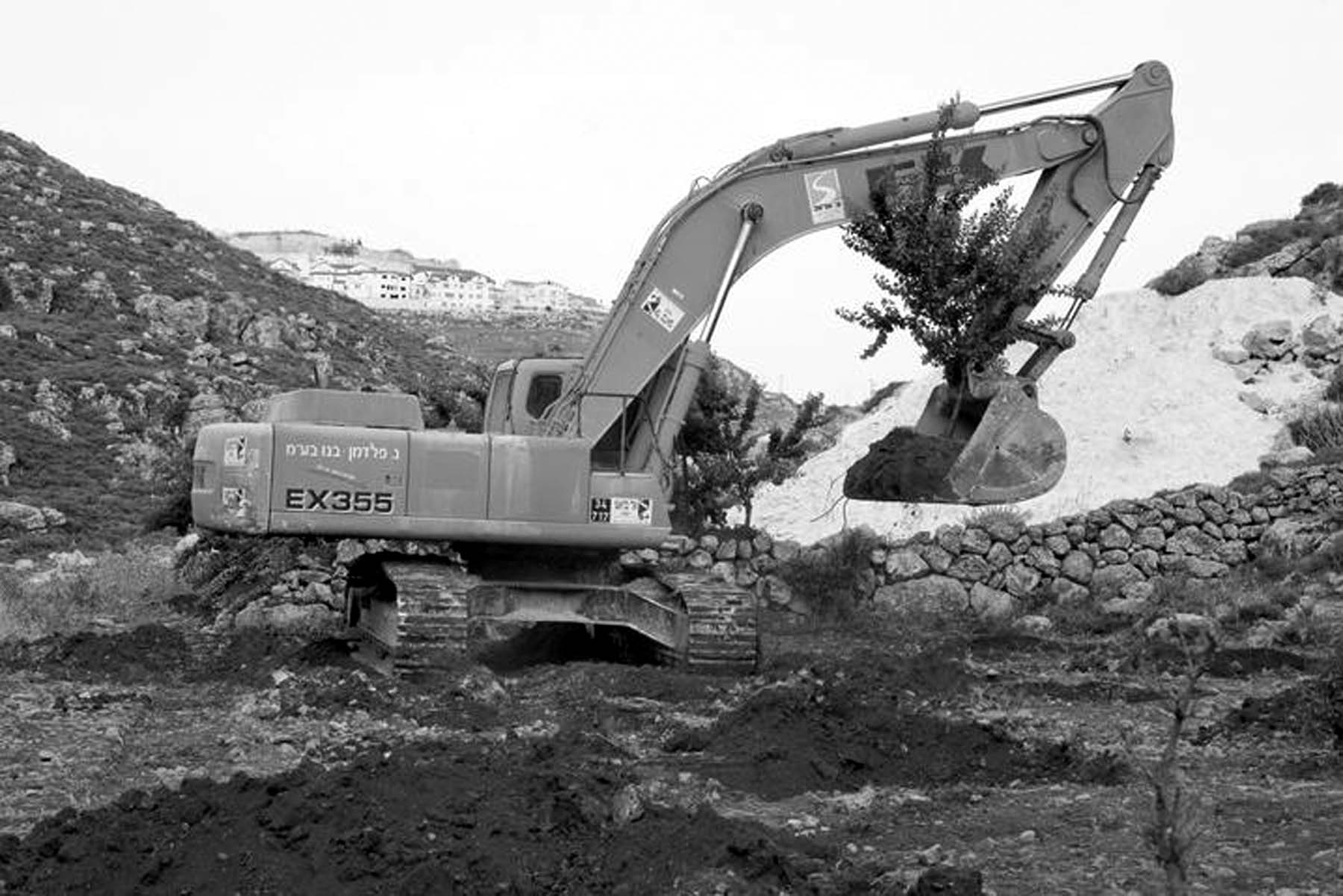
In their continuing encroachment on Palaestinian territory, Isreali forces not only evict Palestinians but destroy their lands and property as well. This includes the olive trees whose stewardship is passed on from one generation to another. Olive trees are more than a source of livelihood among Palestinians but they are highly charged with cultural meanings, including peace and goodwill.
Photo from Activestills.org
Every time I present myself and the Coalition of Women for Peace, I sense how suspicious and repulsive the word “peace” has sounded to me. Our rhetoric has been co-opted and stripped off of its meanings. “Peace” has become a synonym for occupation. Peace negotiations are a political theatre, staged by the actors to look good and please their audiences at home and abroad.
As a radical feminist, I have come to understand that the deeply rooted aspiration for peace in the Israeli dominant culture is an aspiration for peace in the context of domination and subordination.
Peace in the sense of “peace and quiet” is the object of a great deal of Israeli and international desires, much more than the sense of challenging and changing the political power balance.
I am often asked – what gives us hope? Well, I am not very strong on hope. Living in Israel is great if you wish to nourish the cynical and bitter elements of identity. Yet, one thing that does give us hope is the rising economic activism around the world, as local and global campaigns gain momentum and successfully demand accountability from those who profit from the occupation. Occupation is not just a political regime: it is also a business. We would really love to see it closed down.





 The
The 
 Isis Resource Center holds one of the largest feminist collections of materials in the Global South. With 40 years of publication experience, Isis holds a vast collection.
Isis Resource Center holds one of the largest feminist collections of materials in the Global South. With 40 years of publication experience, Isis holds a vast collection.